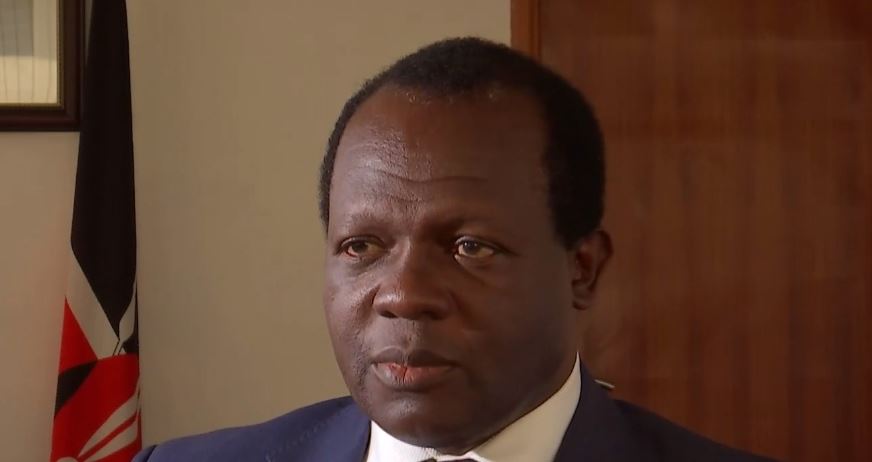 Jubilee Party Secretary-General Raphael Tuju has denied claims that the party sought the services of embattled data analytics firm Cambridge Analytica.
Jubilee Party Secretary-General Raphael Tuju has denied claims that the party sought the services of embattled data analytics firm Cambridge Analytica.
Tuju further downplayed reports that negative social media campaigns against opposition leader Raila Odinga influenced the re-election of President Uhuru Kenyatta.
He was speaking in an interview with Channel 4 News on Tuesday, a day after Raila Odinga’s interview with the British news programme.
Tuju said Jubilee saw no reason in seeking such services to manipulate voters since Kenyans are seldom influenced by online messaging as is the case with the Western world.
“I can assure you that even if they offered that kind of service we would not look for it because the dynamics of voter behaviour in this country is completely different from what you would have in your countries,” said Tuju.
The secretary general, however, admitted that Jubilee sought the services of Cambridge Analytica’s parent company Strategic Communications Laboratories (SCL) to run political adverts for Uhuru’s campaigns.
“We did a lot of research especially focus group discussions and they were responsible for looking at focus group discussion results and which fed into production of communication material like posters and billboards.”
He said it wasn’t necessary to seek data assistance in crafting the campaign messages because Jubilee party understands the profile of Kenya’s political arena.
Tuju said campaign posters and billboards were developed based on the unique voting patterns of each county in previous elections.
He also denied claims that the party may have paid Harris Media, a US-based political media company, to run the polarizing online campaign adverts The Real Raila and Uhuru for Us.
“No, and we would have no reason [to pay Harris Media] to do it [run the adverts].”
Tuju said Jubilee did not bother finding out the firm behind the smear campaign even after some of the messages painted Uhuru in a bad light.
“I saw some ads which were very adversarial to our own presidential candidate president Uhuru Kenyatta but knowing the penetration of social media and what effects it would have in voter behaviour modification, we would not be bothered by it.”
The Secretary-General said the government had no way of stopping the polarizing posts from circulating “because we don’t even have the address [of Harris Media]”.
“It was very unfortunate that we had that kind of campaign,” Tuju said, noting that similar ads caused the 2001/08 post-election violence.
“We are as a party hoping that we can make that transition from the very ethnic polarized campaign to a more policy-driven campaign,” he added.
Tuju explained that the online smear campaign during politics was a global problem that wasn’t unique to Kenya.






